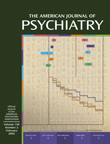Suicide Attempt After Use of Herbal Diet Pill
Ms. A, a 32-year-old mother of two children, was brought to the hospital in a comatose state after she had swallowed 80 tablets of acetaminophen, 60 tablets of an herbal weight-loss supplement, and an unknown number of multivitamin tablets. She had no past history of mood disorders, according to both herself and her husband. She had started using the herbal weight-loss supplement about 2 months before her hospitalization. She reported that since that time, she had been feeling depressed most of the time, had been irritable, and had poor impulse control at work and at home. She had yelled at her boss and at her husband and daughter and had thrown things at them during moments of rage. She also reported frequent suicidal ideation and feelings of guilt. She had more energy and slept less—no more than 3 hours a night. She also heard voices calling her name.After the overdose, Ms. A was admitted into the intensive care unit, where supportive measures were administered. Her serum acetaminophen level was 182.31 μg/ml at admission and decreased to <1.00 μg/ml 2 days later. Her level of aspartate transaminase went from 239 U/liter at admission to 872 U/liter the next day, then down to 26 U/liter a week later. Her alanine transaminase level went up from 243 U/liter at admission to 971 U/liter the next day, then decreased to 530 U/liter a week later. Her LDH level was 1452 U/liter at admission.After Ms. A regained consciousness, the results of a psychiatric evaluation revealed a slightly overweight woman with pressured speech, flight of ideas, an irritable and annoyed mood, and auditory hallucinations. These symptoms gradually subsided over 5 days without the administration of psychotropic medication. At the 5-month follow-up, Ms. A was euthymic, with no suicidal ideation, and was taking no psychotropic medication.
References
Information & Authors
Information
Published In
History
Authors
Metrics & Citations
Metrics
Citations
Export Citations
If you have the appropriate software installed, you can download article citation data to the citation manager of your choice. Simply select your manager software from the list below and click Download.
For more information or tips please see 'Downloading to a citation manager' in the Help menu.
View Options
View options
PDF/EPUB
View PDF/EPUBGet Access
Login options
Already a subscriber? Access your subscription through your login credentials or your institution for full access to this article.
Personal login Institutional Login Open Athens loginNot a subscriber?
PsychiatryOnline subscription options offer access to the DSM-5-TR® library, books, journals, CME, and patient resources. This all-in-one virtual library provides psychiatrists and mental health professionals with key resources for diagnosis, treatment, research, and professional development.
Need more help? PsychiatryOnline Customer Service may be reached by emailing [email protected] or by calling 800-368-5777 (in the U.S.) or 703-907-7322 (outside the U.S.).

